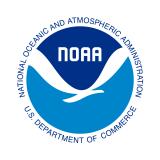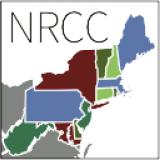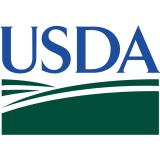Moderate drought (D1) expands in southern New England and Maine, with a significant expansion of abnormally dry (D0) conditions in New York and New England.
For more details, see the Northeast Drought Early Warning System Dashboard.
Key Points
- Moderate drought (D1) expanded:
- Along the central coast of Maine and inland.
- Westward through the Connecticut River Valley in Massachusetts and Connecticut.
- Into small portions of New Hampshire and Vermont.
- Abnormally dry (D0) conditions:
- Expanded into most of Maine, New Hampshire, and Vermont.
- Massachusetts and Connecticut saw expansion westward of the Connecticut River Valley and into the Berkshires.
- Additional counties in the Finger Lakes and Capital regions of New York became abnormally dry as well.
Current U.S. Drought Monitor map for the Northeast Drought Early Warning System with data valid for June 28, 2022. The U.S. Drought Monitor is updated each Thursday to show the location and intensity of drought across the country.
According to the latest U.S. Drought Monitor:
- Moderate drought (D1) conditions exist in 13.29% of the region.
- Abnormally dry (D0) conditions exist in 33.37% of the region.
U.S. Drought Monitor Categories
Current U.S. Drought Monitor map for the Northeast Drought Early Warning System with data valid for June 28, 2022. The U.S. Drought Monitor is updated each Thursday to show the location and intensity of drought across the country.
According to the latest U.S. Drought Monitor:
- Moderate drought (D1) conditions exist in 13.29% of the region.
- Abnormally dry (D0) conditions exist in 33.37% of the region.
Current Conditions
U.S. Drought Monitor 1-Week Change Map

Animation: 2022 U.S. Drought Monitor Conditions in the Northeast

Accumulated Precipitation Departure from Normal

Accumulated Potential Evapotranspiration (PET) Departure from Normal

State-Reported Impacts
Maine
- June 24, 2022, WAGM – Some Good News for Hay Production
- Maine Dry Well Reporting
Massachusetts
- June 27, 2022, WBUR – Massachusetts Abnormally Dry Heading Into July
- June 27, 2022, Boston.com – Recent Rain Doesn’t Help Dry Conditions in Eastern Massachusetts
- June 26, 2022, The Sun Chronicle – Increased Outdoor Water Regulations
- Town government websites addressing drought:
Update from Dave Celino, Chief Fire Warden, Massachusetts DCR on June 29, 2022:
- Fire Behavior: "We are in full green up, and as such, fire activity has been low to 0 over the last 3 weeks. Large fire growth this time of year is typically limited by fully green fuels, higher fuel moistures, and shading of fuels under fully leafed out forest canopies. We started to see a few small fires this past weekend, which showed fire behavior matching the KBDI values, meaning they were burning a few inches into the upper soil layers. Grasses and low shrub fuels are just starting to show signs of curing from the slowly increasing dry conditions; however, there have been no wildland fire control issues connected to the indices as of yet. We’ll be watching this trend closely, and communicating with our partners and stakeholders."
- Defoliation Concerns: "Massachusetts is seeing noticeable defoliation from Spongy Moth. Landscapes experiencing widespread defoliation on upper, droughty sites will see increased drying of surface fuels from lack of canopy shading, and an increase of direct sunlight. This could have a direct effect on fire behavior, by increasing fuel availability and potentially increasing fire growth on these affected sites. The fire behavior concern is the effects of defoliation exacerbating the trending drought stresses on light surface fuels. Our Forest Health staff are currently surveying the extent of defoliation across the state, which will give us the scope of the issue."
New York
- June 29, 2022, FingerLakesdailynews.com – Water Conservation Order in Interlaken, NY
- June 30, 2022, RochesterFirst.com – Dry Weather and Fireworks Danger
Vermont
- June 24, 2022, Times Argus – Surface Water Resiliency in Vermont
Outlooks
- According to the Climate Prediction Center's 8–14 day outlook (valid July 8–14), odds favor below-normal temperatures across most of the Northeast except western New York, where there is a greater likelihood of near-normal conditions. Above-normal precipitation is favored across the region, from New York through the southern border of Maine; in the rest of Maine, odds favor near-normal precipitation.
- The week 3–4 outlook (valid July 9–22) predicts equal chances of above- or below-normal precipitation across the entire Northeast, and odds favor above-normal temperatures for the region.
8–14 Day Temperature Outlook

8–14 Day Precipitation Outlook

Temperature Outlook Week 3–4

Precipitation Outlook Week 3–4

What We Are Watching
With respect to rapid onset and intensification of drought, incoming Condition Monitoring Observer Reports (CMORs) are critical. Learn more about the process and share your observations. Here’s a sample of a recent report:
CMOR Report Detail: June 27, 2022
- State/Territory: New York
- County: Montgomery
- Date: 6/27/2022
- How dry or wet is it? Mildly Dry
- How much experience do you have with conditions there? 5-10 years
- How many times in the past have you seen it like this? Twice or more
- When was it most recently like this? 2021
- How localized or widespread are the conditions you are reporting? Yards and fields are dry and turning brown in areas. Fire spread is very high. Small creeks and streams are running low.
- Crop production: less water in ponds, creeks, etc.
- Public health impact air quality: dust, pollen; garden needs more water or yields less
- Household impact: increased lawn landscape watering; dry lawn: increased power bill
- Fire impact: more fire risk
- Forestry impact: no new season growth/no new buds; leaves discolored, shriveled, burnt; dead trees; more invasive species
- Freshwater fish impact: less water; reduced streamflow
- Description and/or caption information: Lawns and fields have to be mowed less often lately. Lawns are starting to turn brown in certain areas. Streams and creeks are running lower than usual. Some trees have shown slow leaf growth and an increase in invasive bugs. Gardens and lawns have been needing more water than usual.
NIDIS and Northeast DEWS News
The Northeast DEWS has selected a date and location for its 2022 Partners Meeting. The meeting will be held on Tuesday, November 1 and Wednesday, November 2. The meeting will be held at the Queensbury Hotel and Conference Center in Glens Falls, New York. Agenda and travel information will be made available in the coming weeks.
Additional Resources
This week we feature a water deficit calculator from Cornell University’s Northeast Region Climate Center and some important information from the USDA Northeast Climate Hub:
- NRCC/Cornell University’s Climate Smart Farming - Water Deficit Calculator
- USDA Northeast Climate Hub
- Information on USDA Drought Assistance Programs
- Drought Resilience Practices
Also see:
- Your local National Weather Service office
- NOAA Regional Climate Services Monthly Webinar Series (next webinar is on July 28)
- USDA Northeast Climate Hub
- USGS New England and New York Water Science Centers
Use these sites to keep tabs on drought degradation and improvements in the areas outside of the Northeast DEWS borders:
Contacts for More Information
Sylvia Reeves
Regional Drought Information Coordinator (Northeast DEWS)
NOAA/CIRES/National Integrated Drought Information System (NIDIS)
Email: sylvia.reeves@noaa.gov
Ellen L. Mecray
Regional Climate Services Director, Eastern Region
NOAA/NESDIS/National Centers for Environmental Information
Email: Ellen.L.Mecray@noaa.gov
Prepared By
Sylvia Reeves
NOAA/National Integrated Drought Information System (NIDIS), CIRES
Samantha Borisoff, Jessica Spaccio, Keith Eggleston, Art DeGaetano
Northeast Regional Climate Center
Ellen Mecray
Regional Climate Services Director, Eastern Region, NOAA
David Hollinger
USDA Climate Hubs
Gardner Bent
USGS New England Water Science Center
In partnership with National Weather Service Offices of the Northeast and State Climate Offices of the Northeast.
This drought early warning update is issued in partnership between the National Oceanic and Atmospheric Administration (NOAA), U.S. Geological Survey, and the U.S. Department of Agriculture (USDA) to communicate concern for drought expansion and intensification within the Northeast U.S. based on recent conditions and the forecasts and outlooks. NIDIS and its partners will issue future Drought Early Warning Updates as conditions evolve.






